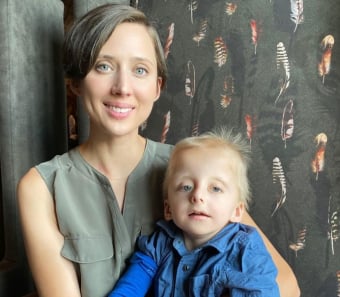NEU1 sequencing is a molecular test used to identify variants in the gene associated with Sialidosis .
3 weeks
81479
$800
Sialidosis, also known as mucolipidosis type I, is among the rarest lysosomal disorders classified as part of the glycoproteinoses. There are two clinically distinct subtypes of sialidosis. The less severe form of the disorder, sialidosis type I, characterized by later onset, cherry red spots, progressive vision loss. These patients can also have other neurological symptoms such as ataxia and myoclonus, but typically have normal intelligence. Type II is the more severe form of sialidosis. These patients usually have more physical findings than patients with type I, such as short stature, coarse features, thoracic kyphosis, and hepatosplenomegaly. Similar to the milder type I patients, individuals with type II may also have the cherry red spot, ataxia, and myoclonus. However, additional neurological symptoms are likely to be present in patients with type II
Molecular testing is useful to confirm the diagnosis and to identify the disease causing mutations within a family to allow for carrier testing and prenatal diagnosis.
Sanger Sequencing
The preferred sample type is 3-5 ml of peripheral blood collected in an EDTA (purple top) tube. Extracted DNA, dried blood spots, and saliva are also accepted for this test. Saliva samples must be submitted in an approved saliva kit. Contact the lab to receive a saliva kit or to have one sent to your patient.
The specimen should be kept at room temperature and delivered via overnight shipping. If shipment is delayed by one or two days, the specimen should be refrigerated and shipped at room temperature. Do not freeze the specimen. Samples collected on Friday can be safely designated for Monday delivery.
Prenatal diagnosis is available if the familial mutations are known. Additional fees for cell culture and maternal cell contamination may apply. Maternal cell contamination studies are required for all prenatal molecular tests. Contact the laboratory prior to sending a prenatal specimen.
Call our laboratory at 1-800-473-9411 or contact one of our Laboratory Genetic Counselors for assistance.
Robin Fletcher, MS, CGC
Falecia Thomas, MS, CGC
Alex Finley, MS, CGC
